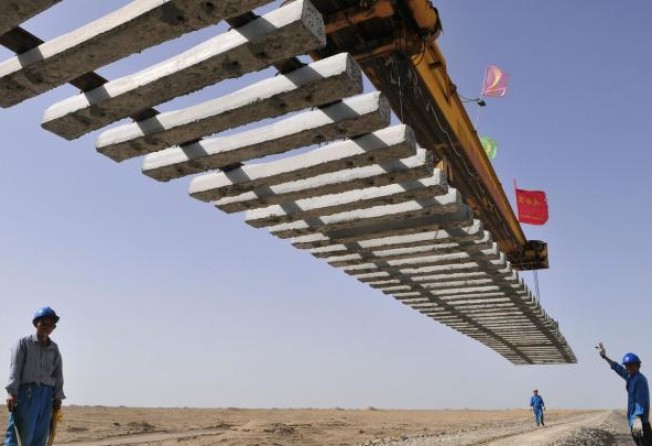More superministries on the way in Beijing
Efforts to cut bureaucracy and graft are likely to see more mergers between big government agencies, as flagged by Hu, observers say

More mergers of cabinet-level agencies are due as Beijing steps up efforts to streamline bureaucracy after a reshuffle next year, experts said.
Analysts said likely targets for absorption into expanded "superministries" include the massive Railways Ministry, which was spared consolidation into the Transport Ministry five years ago in the face of fierce resistance from the former railways minister Liu Zhijun.
That was before the agency was struck by a series of scandals and embarrassments, including Liu's removal and arrest for corruption and the high-speed-train crash in Wenzhou that killed 40 passengers and injured 172. Beijing has already initiated several efforts to rein in the cash-strapped agency's reach and reform its operations.
Professor Wang Yukai of the Chinese Academy of Governance said the decision not to include the Railways Ministry left the transformation of the Transport Ministry incomplete, even as the merged agencies struggle to co-ordinate operations.
"These agencies are still independent from each other and have yet to become one unified ministry," Wang said. He said the Railways-Transport merger was likely to be on the table after Xi Jinping and Li Keqiang set up the new government in March.
President Hu Jintao foreshadowed more mergers in his report to the recently concluded party congress, when he called for a "well-structured, clean and efficient, service-oriented government that has scientifically defined functions and satisfies the people".
"We should steadily advance the reform to establish larger government departments and improve division of functions among them," Hu said.
Any mergers is likely to continue the superministry project that the current government began five years ago in an effort to reduce overlap and increase efficiency. In 2008, Beijing leaders combined 15 agencies into five expanded ministries based on shared goals and responsibilities.
That reshuffle reduced the number of cabinet-level ministry by one to 27. In addition to the Transport Ministry, it also created the Ministry of Industry and Information, the Ministry of Human Resources and Social Security, the Ministry of Environmental Protection and the Ministry of Housing and Urban-Rural Construction.
Li, who oversaw the reshuffle as one of his first jobs as vice-premier, was forced to abandon efforts to merge Railways into Transport after Liu fought the change. Once installed as premier, Li would be in a better position to finish the job.
Another sign the Railways Ministry could soon lose its independence was the omission of railways minister Sheng Guangzu from the Central Committee. The committee included no members from the agency.
Wang said additional options include setting up superministries to oversee culture and agriculture.
Professor Mao Shoulong, a public administration specialist at Renmin University, also expected more superministries, but said reforms would probably not be drastic enough to keep the number of cabinet-level agencies below 20, as is the case in most developed countries.
Mao, who also expected railways issues to be placed under the expanded Transport Ministry, said the last round of mergers left unclear divisions of power and responsibilities, with different departments still obstructing solutions to many issues.
"For example, the Ministry of Agriculture supports pig farms in rural areas but it has no environmental protection duties," he said. "It does not have environmental experts and thus has left pig excrement, which is supposed to be organic fertiliser, as pollution."
The director of the State Intellectual Property Office (SIPO), Tian Lipu, endorsed bringing all intellectual property agencies, including the State Trademark Bureau and the General Administration of Press and Publication, under one umbrella.
Despite its overarching name, the SIPO was created from the former state patent office and has responsibility only over patent rights. Tian said most developed countries have assigned all intellectual property issues to one office. "When it comes to the protection of patents, the application of trademarks, it would be the same thing for me if I owned a business," he said. "So if I have to go to different departments to deal with these issues, it naturally means more costs."
Streamlining the central government could affect more than just cabinet-level agencies, as it sends a signal to lower levels of government.
After the 2008 reforms, a handful of cities took steps to trim their bureaucracies, although most have failed to act.
Among those who did, Suizhou city, Hubei province, merged several agencies into one department. Shenzhen also organised all departments according to decision-making, execution and supervisory powers.